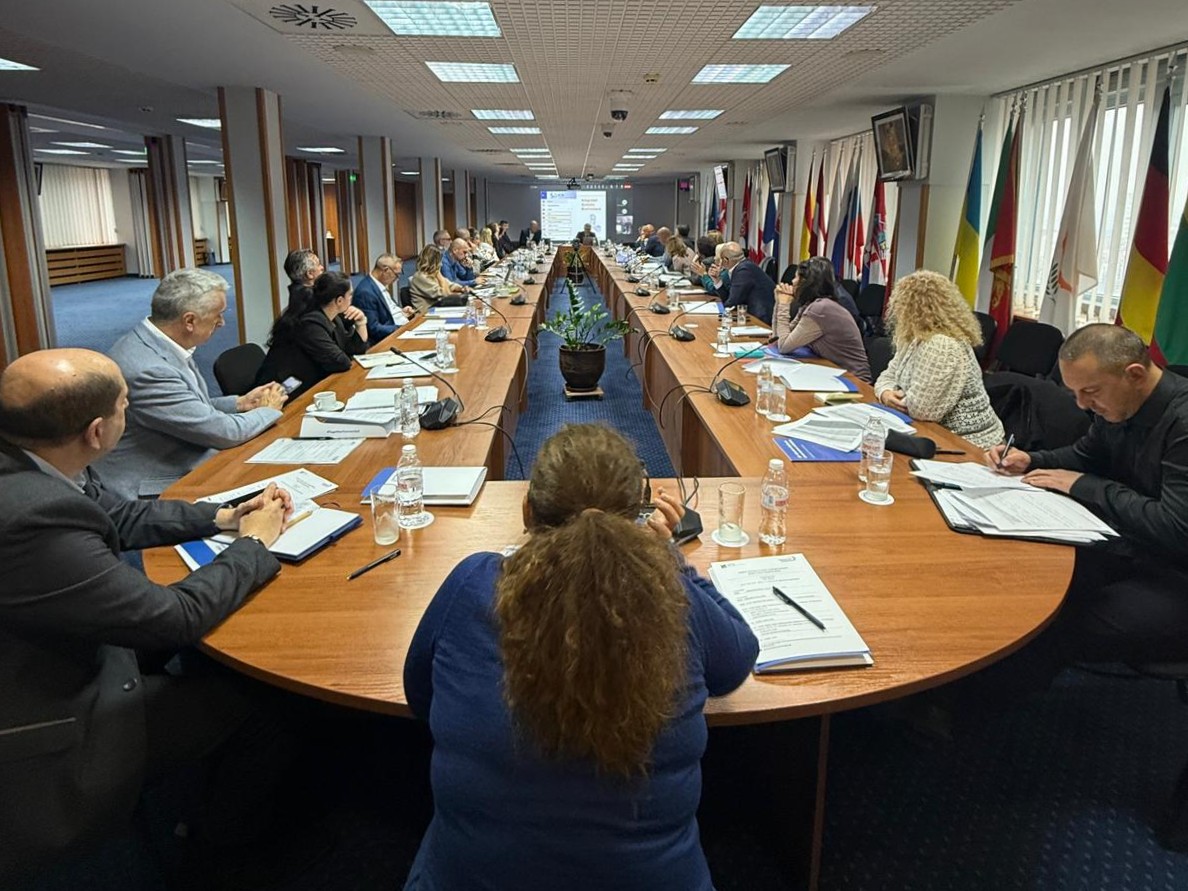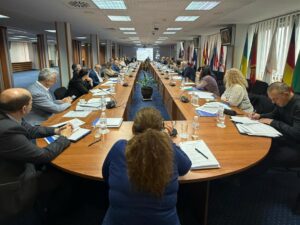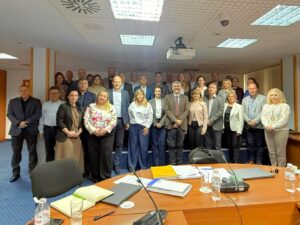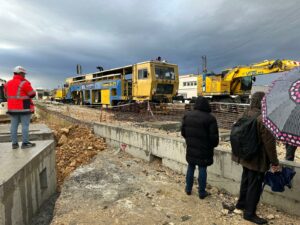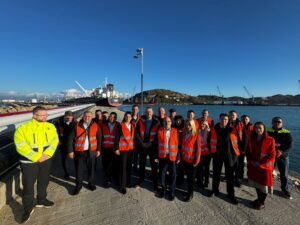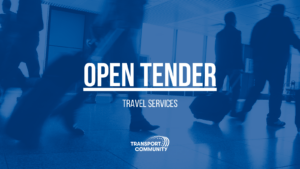SOFIA – Representatives from Bulgaria, North Macedonia, and Serbia gathered on 19 November 2025 in Sofia for a trilateral workshop dedicated to improving border crossing procedures and strengthening regional cooperation under the Green Lanes framework.
The event, hosted by the Permanent Secretariat of the Transport Community and supported by CEFTA and the European Commission, brought together officials from customs, transport authorities, inspection bodies, donors, and international partners to advance practical solutions that will make border crossings faster, more predictable, and more efficient.
The workshop built on the momentum of previous regional initiatives and provided a platform for the three neighbouring economies to jointly address shared challenges and accelerate the modernisation of key border crossing points.
The first session examined the performance and challenges of three priority Green Lanes crossings: Gyueshevo–Deve Bair (Bulgaria–North Macedonia), Kalotina/Gradina (Bulgaria–Serbia), and Tabanovce/Preševo (North Macedonia–Serbia). The participants discussed SEED+ data exchange and the need to expand and operationalise real-time information flows; iInter-agency coordination, harmonised working hours, and improved communication channels; and synchronised and joint controls to reduce delays and streamline procedures.
A dedicated session focused on the infrastructure upgrades needed to improve capacity, flow, and safety at Green Lanes border crossings. Representatives from the World Bank and participating administrations outlined priority investments for road and rail border crossing points, ongoing and upcoming technical assistance, and possible financing mechanisms to support reconstruction, expansion, and digitalization.
The final session explored other key shared TEN-T border crossing points, while a special case study was presented on the lack of bilateral agreements affecting rail border operations between Bulgaria and Serbia, developed under an EU-funded project aimed at reducing border obstacles between EU Member States and IPA beneficiaries.
Throughout the workshop, all three partners reaffirmed their commitment to strengthening regional mobility, enhancing connectivity, and supporting the implementation of the EU Growth Plan. They also shared a common understanding that modern, well-functioning border crossing points are essential for trade facilitation, economic integration, and the seamless flow of goods and passengers across the Western Balkans and the EU.

